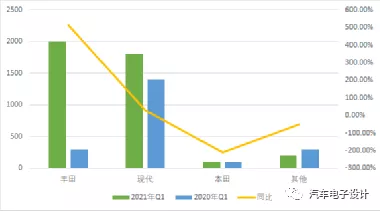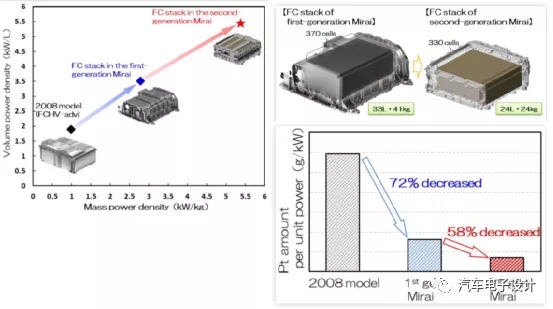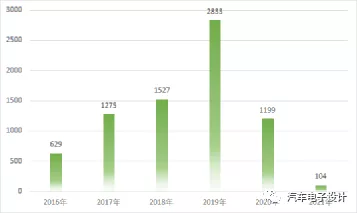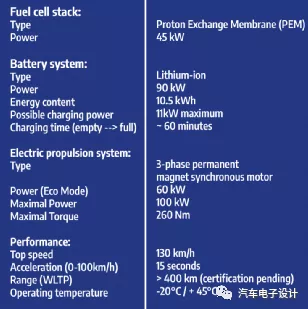I had previously received a task to track the recent progress of fuel cell technology. Personally, I hold a rather pessimistic attitude towards the short-term development of fuel cell vehicles.
Currently, the first-tier automakers that are still firmly engaged in this field are primarily Toyota (which collaborates with BMW) and Hyundai, with the second-tier being the Honda & General Motors alliance. Stellantis also released a fuel cell technology publication this year.
Global Q1 Incremental Fuel Cell Vehicles
According to SNE data, global hydrogen vehicle sales in the first quarter of 2021 increased by 89.2% YoY, nearly 4,000 vehicles.
With the launch of Toyota’s second-generation Mirai FCV fuel cell vehicle, Toyota sold 2,000 units in the first quarter, surpassing Hyundai’s Nexo FCV with 1,800 units, and Honda’s Clarity FCV with 100+ units. Together, the three passenger vehicle models reached a total volume of 4,000 units worldwide.
Note: Toyota’s engineers in SAE described the characteristics of the second-generation Mirai FCV very clearly, and I will summarize them later.


However, fuel cell vehicles in China are currently being undervalued, with Q1 production and sales of only 104 and 150 units respectively, down 43.2% and 27.6% YoY.
In fact, looking back at 2020, the demand for fuel cell vehicles was greatly affected by the pandemic, which also reflects the current stage of demand for fuel cell vehicles. While pure electric vehicles received support from private consumption, the demand for fuel cell vehicles mainly comes from 2B demand, which is the support provided by the building of fuel cell industrial clusters in places such as demo cities for fuel cell vehicles in Beijing, Shanghai, Guangdong, Hebei, and Henan.

Stellantis’ Fuel Cell Technology
Currently, Europe places a relatively heavy emphasis on reducing emissions from commercial vehicles, with multiple pathways in this area. Recently, Stellantis also attempted to market fuel cell vehicles in Europe’s commercial vehicle market and will begin delivering its first fleet of medium-sized hydrogen fuel cell-powered trucks by the end of 2021.
Summary
In a sense, the development of battery technology plays a crucial role in the electric vehicle industry, especially with the continuous decrease in cost, making the current situation very favorable. This process has been heavily influenced by Tesla, particularly in the commercial vehicle, especially the light and heavy truck fields. Whether fuel cells can be competitive in these areas remains to be seen. In the short term, fuel cells do not have a particularly promising outlook in the passenger vehicle sector, but from a technological standpoint, they remain worthy of close attention.
This article is a translation by ChatGPT of a Chinese report from 42HOW. If you have any questions about it, please email bd@42how.com.